Natural Resources Wales timber sales criticised by watchdog again
- Published
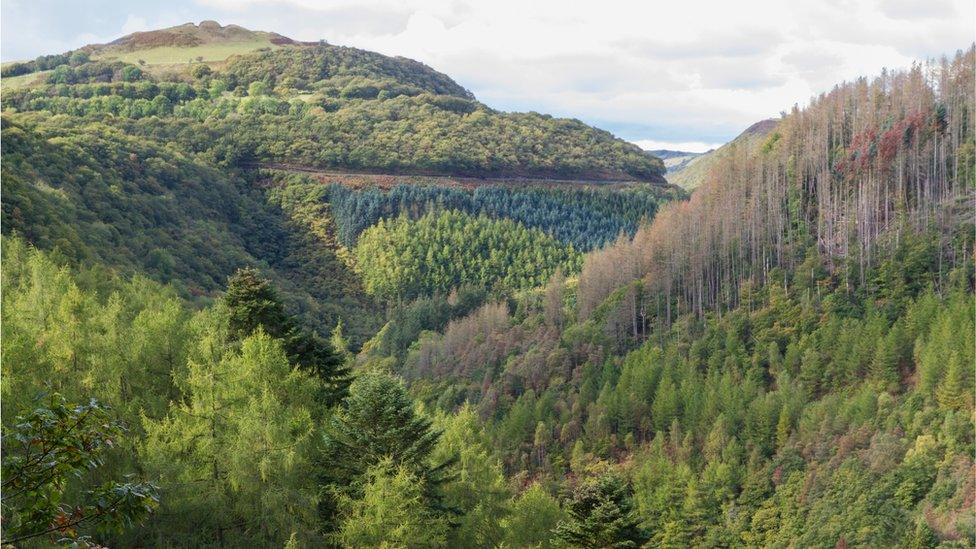
Natural Resources Wales is responsible for publicly-owned woodlands in Wales
An environmental quango has once again sold timber without going to the open market, prompting another damning report from Wales' spending watchdog.
Natural Resources Wales (NRW) entered 59 contracts with three firms without a tender, despite being attacked before for doing the same in a previous deal.
Auditor general Huw Vaughan Thomas said some contracts to buy publicly-owned wood were not entered into lawfully.
NRW said it was committed to ensuring it does not happen again.
In early 2017 the auditor general criticised NRW for eight 10-year deals to sell timber to BSW Timber without tendering.
At that time, he was unable to satisfy himself that the decision to agree those contracts was lawful - a criticism he has repeated with the newer contracts.
A total of 21 of the new deals - created following the termination of the original contracts - were also with BSW Timber, or a firm owned by it.
The new contracts raised £2.76m in 2017/18.
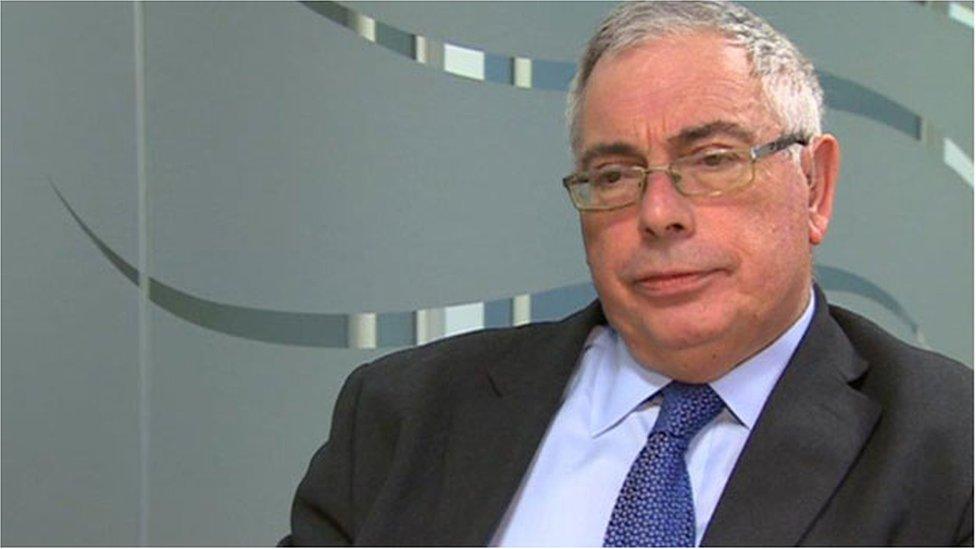
Huw Vaughan Thomas said the contracts were entered into without due process
"I have seen no evidence that NRW took into account the market price of the timber being sold," Mr Vaughan Thomas wrote.
It is the third time that the auditor general has raised warnings over how NRW has managed timber sales in a qualification to the organisation's accounts.
NRW entered into the deal with BSW Timber to sell trees worth £72m - 1.9m tonnes of larch and spruce - without going to the open market in 2014.
It said it needed to award contracts quickly to control the rapid spread of the disease Phytophthora ramorum in larch trees.
BSW Timber had agreed to build a saw line as part of the original agreement - worth £39m to NRW after BSW deducted its costs - but by February 2017 this had not happened, meaning the contracts ended.
In March that year NRW entered into negotiations with the firm over "transitional contractual arrangements" to cover the period between the end of the deals and NRW re-marketing the wood.
It did not tender the new deals, something which departed from NRW's own policy, the auditor general said.
NRW failed to properly document the decisions made and did not tell the Welsh Government, despite the nature of the deals requiring them to.
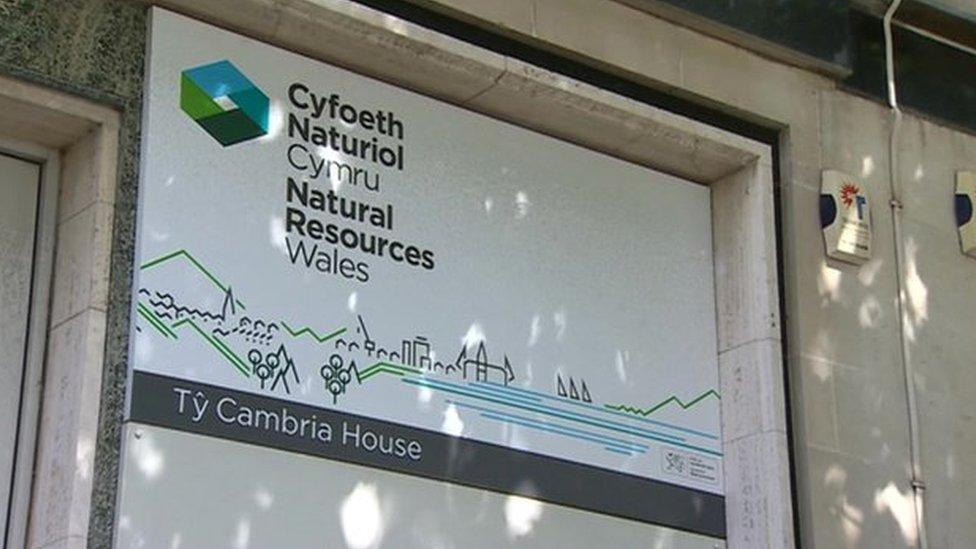
Natural Resources Wales is funded by the Welsh Government, but is run at arms length
"In February 2017, NRW was facing a situation where very substantial timber contracts would terminate at the end of March 2017," Mr Vaughan Thomas wrote.
"Alternative arrangements were required to ensure that the ending of these contracts did not have an adverse effect on timber processors and customers, as well as NRW's own income.
"NRW had to act quickly, but in its haste it did not follow due process and disregarded principles of good governance."
Thirteen of the contracts were not authorised in accordance with the rules that govern NRW. "I therefore consider that they were not entered into lawfully," the auditor general said.
In his new report, attached to the 2017/18 accounts, he said NRW had not treated his previous findings "sufficiently seriously".
'Falling short'
NRW Chief Executive Clare Pillman said: "I fully accept the auditor general's findings.
"These are serious issues and I am fully committed to learning lessons and making sure that this does not happen again.
"The issues in this report demonstrate that we are falling short of the high standards we expect of ourselves."
"Our staff are very committed to their work," Ms Pillman added.
"The issues in this report have arisen to a large extent through their desire to maintain momentum in our timber harvesting and sales when faced with large volumes of diseased larch, and to retain confidence in Wales' timber industry."
- Published15 June 2017
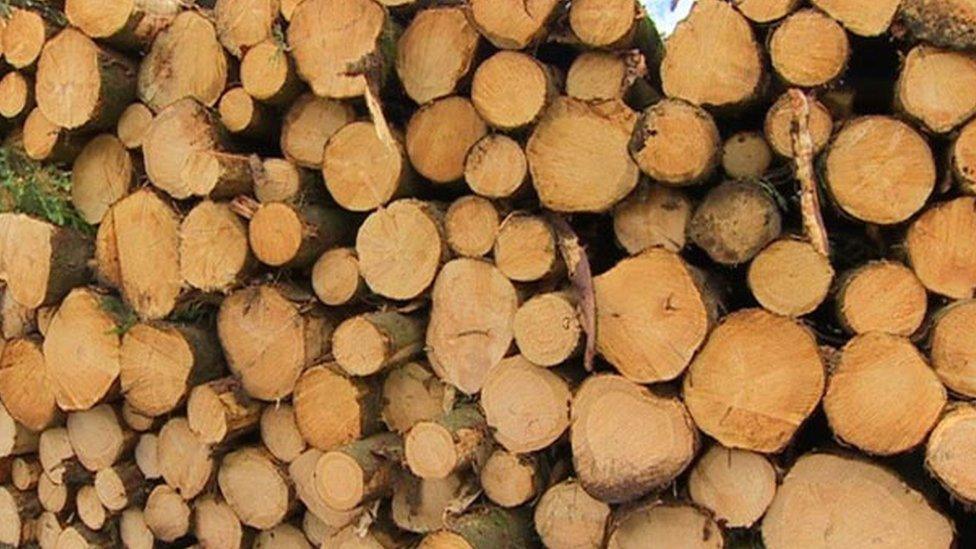
- Published15 March 2017
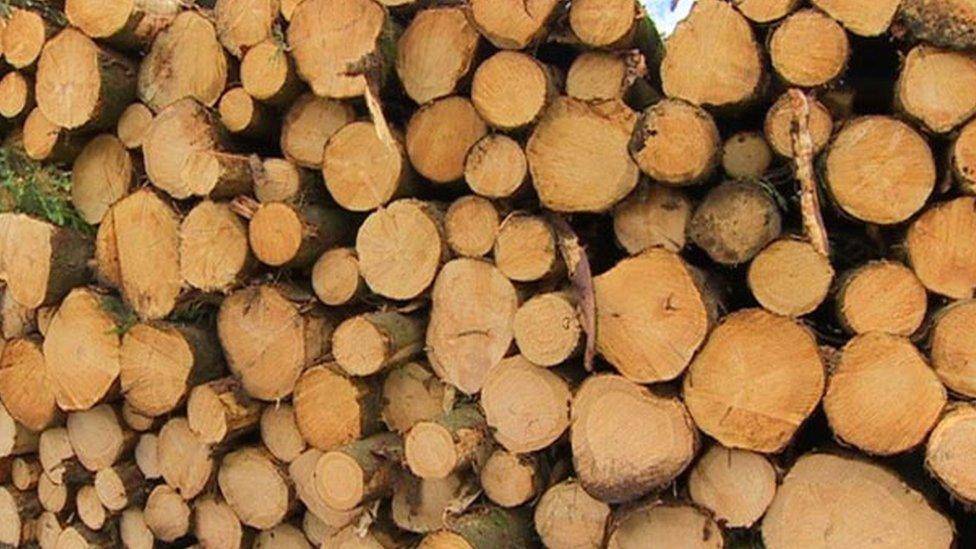
- Published4 April 2017

- Published22 May 2017
